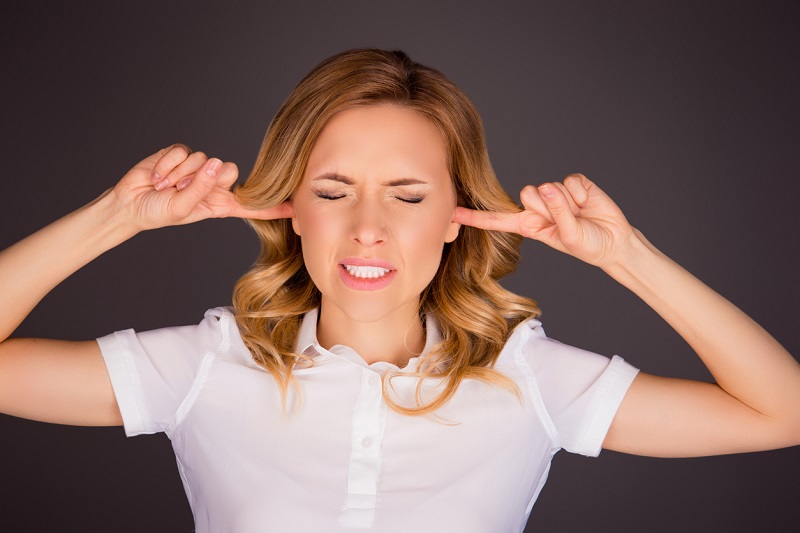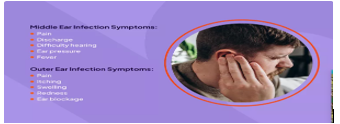Looking for information on the meaning of the word “misophonia” and the characteristics of this disorder? Discover with us everything you need to know: the tests to diagnose it, the causes, the cure and the remedies to heal.
If you are wondering what the meaning of the word “misophonia” is, just think of its Greek etymology: literally, in fact, it means “hate for sounds”. This is a particular form of acoustic intolerance towards specific noises.
Misophonia is a disorder that is still quite controversial, so much so that it can not officially speak about a real disease. Those who suffer can react in different ways ranging from irritability to various discomforts of a psycho-physical nature. This is also the reason why there is still no real cure, but only a series of indicated therapies.
Before we find out what they are, let’s take a closer look at what misophony is …
Misophonia: meaning and characteristics
Misophonia, as anticipated, consists of a particular intolerance to sounds, which come from things or people. This type of intolerance causes negative reactions, sometimes quite violent, although not pathological. In fact it is not a real disease, or at least at the time was not recognized as such, because it does not cause damage to the sound : the trouble it causes is mainly psychological. According to statistics, about 20% of the world population would suffer from misophonia, without discrimination of sex and age, even if it is more widespread among prepubescent women.

What are the causes of misophonia?
Since this is still a little known disorder, the causes that cause it are not known .
If on the one hand some supposed malfunction of the hearing apparatus is excluded, on the other, doctors are more likely to believe that it has to do with a problem of the central auditory system, in the brain. The causes, however, are still all to be ascertained and we do not have any research addresses.
Misophonia: The symptoms
Symptoms of misophonia occur whenever a particular sound or noise disturbs those suffering from this intolerance.
The most common symptoms are therefore reactions of annoyance, attacks of anger or panic attacks (with all the associated physical symptoms, from perspiration to palpitations), anxiety and aggression, sense of nausea or disgust.
To trigger these reactions, more or less violent, can be different types of sounds. Among the most common we find: sounds linked to orality (swallowing, chewing, spitting …), sounds produced by the nose(nasal voices and sounds, snoring, sneezing, sniffing …), verses produced by small children or from different types of animals, sounds emitted by body movements (from scratching of joints to ticking of nails), environmental sounds (from cell phone ringtones to TV volume, from the clocks of the clocks to the noise of the claxons and so on. ..).
Test to be performed for a correct diagnosis of misophonia
What tests should be performed to diagnose misophonia? First of all it is necessary to carry out an objective examination, that is a test concerning the noise and the sounds that trigger intolerance in order to identify and circumscribe them.
The second place, it will be necessary to proceed with a differential diagnosis, that is to carry out all those tests that allow to exclude other hearing disorders (such as the aforementioned hyperacusis), but also psychiatric disorders.
To perform these tests, it is necessary to contact doctors specialized in hearing problems, as well as psychiatrists and psychologists, after having excluded acoustic disorders.
Misofonia: care and remedies
As mentioned earlier, misophonia remains a disorder still full of questions, which is why there is no specific cure that allows it to heal. Despite this, however, good results have been obtained with the so-called “sound therapy” : this therapy serves to raise the threshold of tolerance of certain sounds, reducing their intolerance.
The TRT (Tinnitus Retraining Therapy) , or sound therapy, consists in subjecting the patient to noise indicted in progressively increasing volumes, in order to desensitize via a process of adaptation. It is not very different, after all, from what is usually done to treat allergies. The exposure must take place daily, in a first phase for a period of 6-8 hours, which will then decrease.
Another therapy, however, is the so – called “cognitive-behavioral” borrowed from psychology: it involves understanding the psychological motivations behind a particular nuisance, and then learning to live with it. This treatment is particularly indicated for those who show symptoms such as panic attacks or anxiety.
After tests and treatment, can you recover from misophonia?
If you act promptly, at the appearance of the first symptoms and with the right therapy (sound or cognitive-behavioral), misophonia can be healed. Health should never be neglected : according to statistics, more than 80% of those who choose to take care get excellent results.
Unfortunately, not knowing the precise causes of misophonia, we can not point out ways to prevent it .
And if you have discovered that you do not suffer from misophonia, consider that irritability and anxiety can also come from fatigue and stress …




